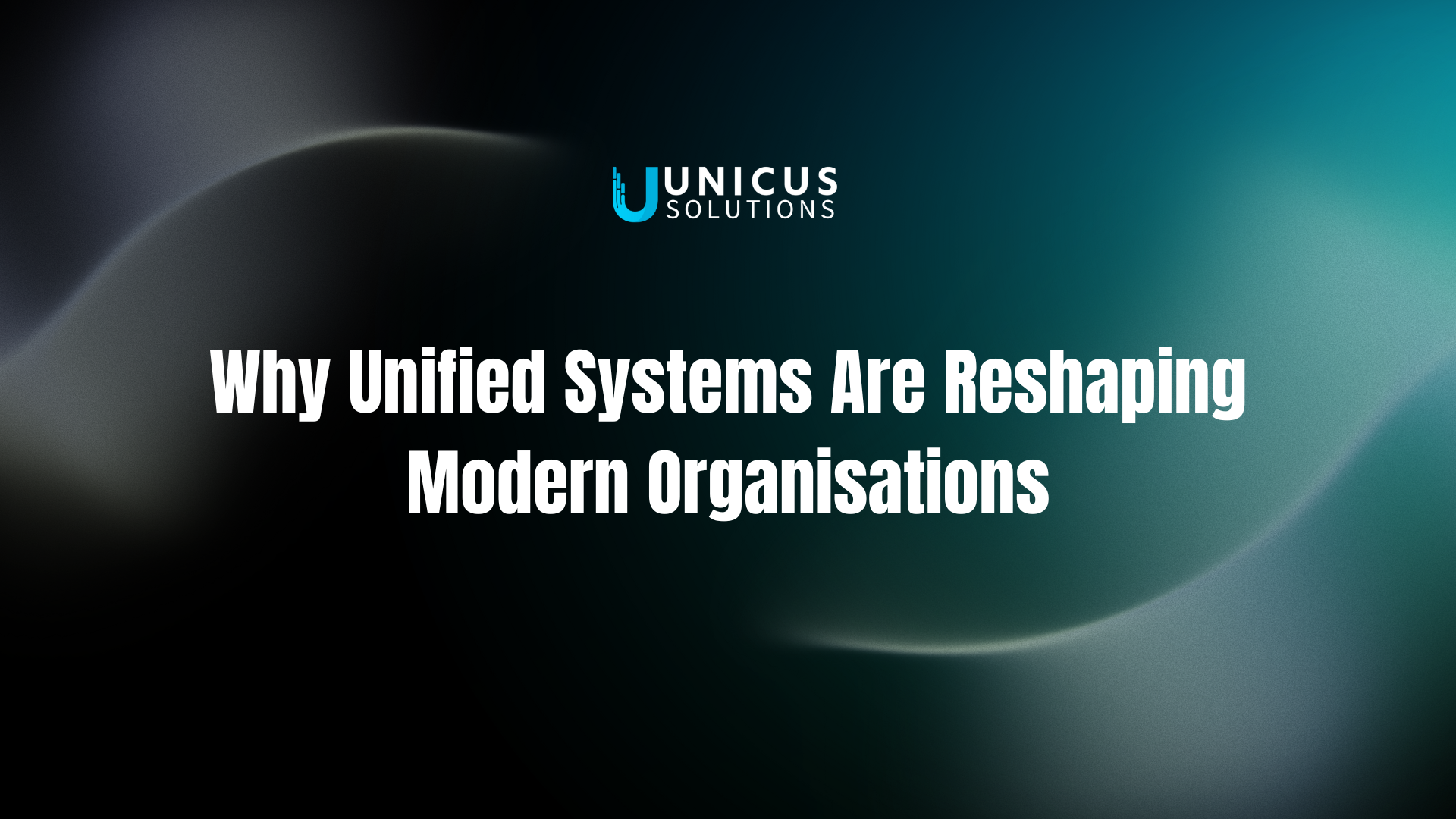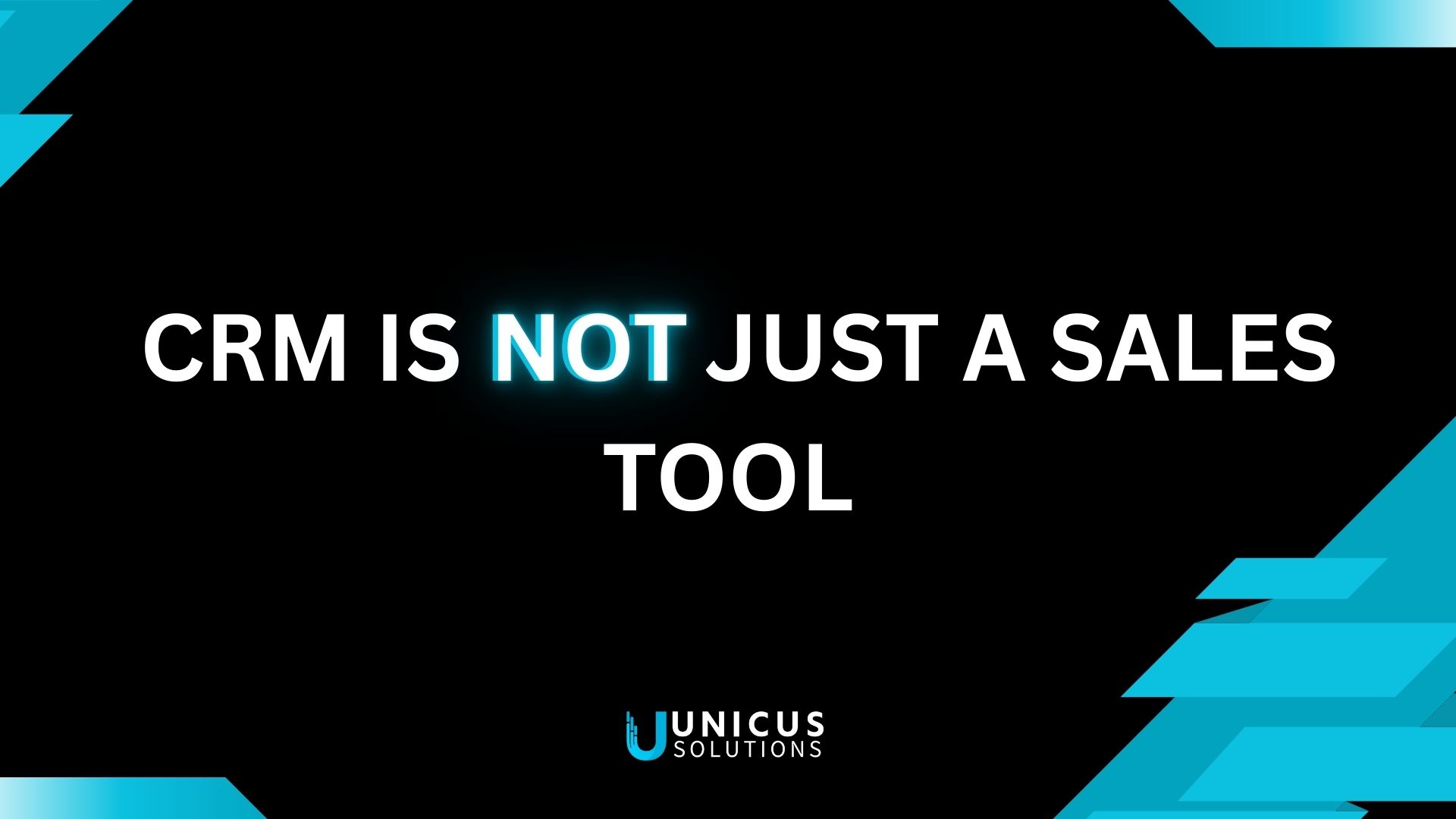The modern workplace has evolved faster in the past ten years than in the previous fifty. Teams are hybrid, workflows are digital, clients expect instant communication, and business decisions now hinge on real-time data rather than quarterly reports.
Yet despite all this progress, organisations remain weighed down by the same silent productivity killer:
Disconnection.
Disconnection between departments.
Disconnection between tools.
Disconnection between data sources.
Disconnection between what leadership wants and what teams can deliver.
At Unicus, we’ve spent years working deep inside the operational layers of recruitment agencies, educational groups, finance teams, and scaling businesses. And we’re seeing the same pattern everywhere:
Companies don’t fail because they lack effort — they fail because their systems don’t talk to each other.
The Hidden Cost of a Disconnected Tech Stack
When we walk into a new project, we often see this picture:
- A CRM for sales
- A separate ATS
- Excel sheets for payroll
- A marketing tool no one logs into
- A digital compliance system that works… sometimes
- A calendar tool that doesn’t sync
- 4–6 different spreadsheets passed around between teams
On the surface, nothing is “wrong.”
Everyone is working. Emails are going out. Candidates are being placed. Payroll is running.
But underneath the surface?
Productivity is leaking everywhere.
Teams spend hours reconciling data instead of acting on it.
Managers waste precious time searching for the “latest version” of something.
Finance teams correct errors caused by out-of-date information.
Leadership struggles to get a true view of performance.
Disconnection is subtle — but expensive.
And it grows silently until it affects confidence, trajectory, and growth.
Why Unified Systems Are Non-Negotiable for the Future
A unified system doesn’t mean one giant tool that does everything.
It means your ecosystem behaves like one brain:
- One login
- One flow
- One source of truth
- Data passing between modules without friction
- A single operational heartbeat
This future isn’t theoretical — it’s already happening.
Companies who unify early are scaling exponentially faster than those still stitching together patchwork processes.
How Integration Transforms Business Performance
1. It unlocks accurate, actionable data.
Data stops being “numbers” and becomes insight.
When every touchpoint feeds into one ecosystem, leaders get clarity:
- Who is performing?
- Where are bottlenecks?
- Which clients or candidates are at risk?
- What revenue is predictable?
- What compliance issues are coming?
You can’t fix what you can’t see — and unified systems illuminate everything.
2. It streamlines operations across every department.
HR, finance, recruitment, marketing, compliance, and leadership all operate differently — but they depend on each other.
With unified systems:
- HR updates → instantly visible to payroll
- Compliance flags → immediately reflected in candidate availability
- Sales notes → automatically passed into delivery workflows
- Marketing insights → directly linked to CRM performance
This is what organisations look like when they stop firefighting and start flowing.
3. It improves the employee experience.
People perform better when tools support them instead of exhausting them.
A unified ecosystem reduces:
- Duplicate effort
- Manual admin
- Confusion
- Errors
- “Who’s doing what?” conversations
And boosts:
- Focus
- Productivity
- Accountability
- Morale
- Ownership
When your internal experience improves, your external experience improves automatically.
The Unicus Approach: Integration With Intelligence
We don’t just connect systems — we architect operational ecosystems.
Our work spans:
✔ CRM & ATS development
✔ Payroll and finance modules
✔ Compliance automation
✔ Client & candidate portals
✔ API-driven integrations
✔ Dashboards and reporting suites
✔ UX & workflow mapping
✔ Data migration, cleansing & transformation
But the real value isn’t the technology — it’s the clarity we bring.
We help organisations move from chaos to cohesion, from scattered to strategic.
Because when systems talk to each other, your business finally speaks one language.
The Future Is Integrated — And It’s Already Here
Companies who embrace unified systems are unlocking:
- Faster scaling
- Lower operational costs
- Stronger team confidence
- Better compliance
- Enhanced customer journeys
- Higher retention
- Clearer decision-making
- More consistent performance
The question isn’t “Should we integrate?”
It’s “How much longer can we afford to operate without integration?”
At Unicus, we’re building the infrastructures that support the next generation of businesses — the ones who value clarity, automation, and connection.
Because the future of work isn’t just digital.
It’s unified.



